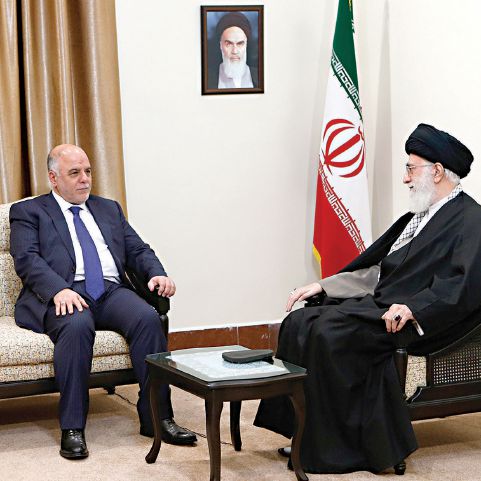What do Iraq, Syria and Lebanon have in common?
Compared to previous presidents, Obama’s foreign policy team seems enamoured with Tehran.
Khairallah Khairallah/The Arab Weekly/September 18/16
There is very little to indicate that the ceasefire in Syria agreed between the United States and Russia is viable. In my view this agreement, which includes a number of secret terms, is indicative of how Washington has caved to Moscow, not just in Syria but in the Middle East as a whole.
It is a damning condemnation of outgoing US President Barack Obama’s foreign policies that, over the past eight years, have seen the rise of Moscow and Tehran as major forces in the Middle East. This is something that was enshrined in the Joint Comprehensive Plan of Action, otherwise known as the Iran nuclear deal. Even though this agreement technically took place between Iran and the P5+1 (the United States, Britain, France, Russia, China and Germany), it is ultimately an agreement between Washington and Tehran. The Obama administration only embarked on this agreement after it came to believe that Iran was the most important country in the region and normalising relations with it would ultimately serve US interests. This meant turning a blind eye to Iran’s expansionist regional project, which is based on promoting sectarianism, including even establishing sectarian proxy militias in a number of Arab states.
Given Russia’s and Iran’s military intervention in the Syrian conflict, it is clear that Syria is a victim of the Iran nuclear deal. Compared to previous presidents, Obama’s foreign policy team seems enamoured with Tehran and it has completely failed to understand that there is a delicate balance of power in the region that, if breached, will result in major instability and insecurity across the Middle East. The problem is that the Obama administration has tinkered in this balance of power, and the chaos that is raging across the Middle East is the result. Three Arab states, more than others, have paid the price for the Obama administration’s flawed foreign policy, namely Iraq, Syria and Lebanon.
With each day that passes, Tehran’s grip on Iraq becomes increasingly apparent, as does Washington’s acquiescence to this new state of affairs. Indeed, one could argue that Washington is doing everything in its power to guarantee this. From Tehran’s influence on the politics in Baghdad to the presence of the Popular Mobilisation Forces, Iran has become the biggest player in Iraq. No reasonable person can defend Saddam Hussein’s brutal regime but at the same time no reasonable person can claim that Iraq today — swathes of which are under Islamic State control — is better off. More than any other event, the US invasion of Iraq in 2003 played a pivotal role in changing the balance of power in the region in favour of Iran, particularly as post-war Iraq saw the rise of a dangerous form of sectarianism that quickly swept across the region.
As for Syria, the recent ceasefire agreed by the United States and Russia is the best evidence of just how much Washington has given up for Russia and Iran. Sectarian militias allied to Iran’s Islamic Revolutionary Guards Corps, including Lebanon’s Hezbollah, remain on the ground in the country ready to defend Syrian President Bashar Assad, who looks more and more likely to be able to hold on to power in one form or another. Under previous negotiation attempts, Assad remaining in power, whether in a transitional capacity or not, was unthinkable. It is clearly Assad’s backers, Iran and Russia, that are running the table in Syria. The United States is also ignoring the role that Iran is playing in Lebanon and the efforts that Tehran is exerting to turn the country into an Iranian protectorate. The country has been without a president for more than two years while its parliament is virtually paralysed by political infighting; meanwhile Hezbollah and its allies are seeking to push for constitutional amendments that would change the ruling system in the country and place more power in their own hands. Hezbollah, which ultimately is nothing more than a sectarian militia, has disrupted political life in the country to push for this dangerous change in Lebanon’s constitution. So what is the common factor between Iraq, Syria and Lebanon? It is the Obama’s administration’s commitment to indulge Iranian transgressions to protect the nuclear deal, no matter the cost. Unfortunately, Iraq, Syria and Lebanon have paid the price for Obama’s hands-off Middle East policies. Ironically, if Washington had played a more active role in the region over the last eight years, there could be no doubt that the Middle East would have been much better off today.
**Khairallah Khairallah is a Lebanese writer. The commentary was translated and adapted from the Arabic. It was initially published in middle-east-online.com.






















